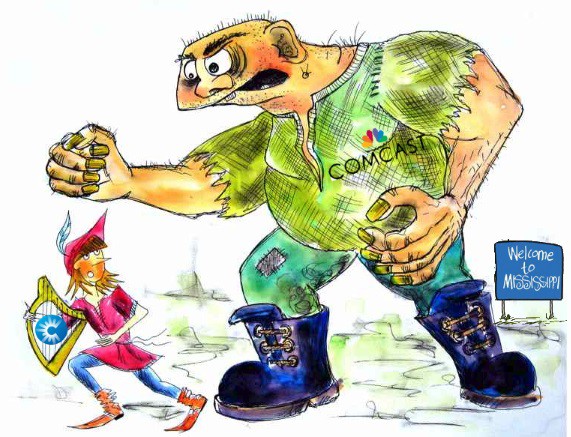 The sleepy deep south isn’t often a battleground for an all-out broadband competition war, but Ridgeland, Miss.-based C Spire, a regional cell phone company with fiber broadband aspirations, has gotten too big for its britches and Comcast is preparing to demonstrate its size and resources can run even a home state provider into the ground.
The sleepy deep south isn’t often a battleground for an all-out broadband competition war, but Ridgeland, Miss.-based C Spire, a regional cell phone company with fiber broadband aspirations, has gotten too big for its britches and Comcast is preparing to demonstrate its size and resources can run even a home state provider into the ground.
C Spire is building a statewide fiber-to-the-home network, city by city, on its pre-existing fiber backbone which extends to C Spire’s cell towers across the Magnolia State. As the fiber network expands, talk of doing something in a “Mississippi Minute” will be a thing of the past as C Spire prepares to deliver gigabit broadband speeds far in excess of what competitors like Comcast, AT&T and Cable One are prepared to offer.
Communities already on the construction list include: Batesville, Clinton, Corinth, Hattiesburg, Horn Lake, McComb, Quitman, Ridgeland and Starkville.
But C Spire’s network caught the attention of Comcast earlier this month when it announced Jackson, the state capital, was going to get fiber service.
C Spire is following Google Fiber’s model, attempting to get enough residents in a neighborhood to pre-register with a refundable $10 deposit. Online pre-registration for the service began in Jackson last month, and several hundred residents applied even before the fiber network expansion was announced, ready to tell Comcast to take a hike.
Jackson neighborhoods that reach sign-up levels set by C Spire will be the first to get the new generation of fiber services, the company says.
“Gigabit infrastructure can create a new economic reality for the city of Jackson,” Duane O’Neill, president & CEO of the 2,100-member Greater Jackson Chamber Partnership, told the Mississippi Business Journal. “In the handful of U.S. cities where this infrastructure is deployed and widely available, it has generated thousands of jobs, millions of dollars of new investment, boosted home values and improved the overall quality of life.”
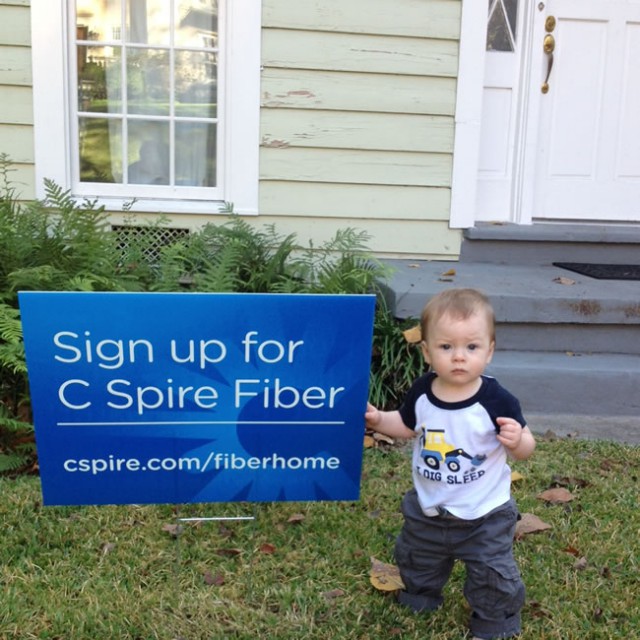 C Spire’s plans could cost Comcast a significant number of cable customers across Mississippi, and it isn’t taking that lightly.
C Spire’s plans could cost Comcast a significant number of cable customers across Mississippi, and it isn’t taking that lightly.
Departing from its usual tradition of focusing new technology on large northeastern cities, Comcast will begin saturating Jackson with its Wi-Fi hotspot service, starting with 200 public hotspots slated for launch before the end of this year. The company only had a handful of Wi-Fi hotspots in Jackson before. Jackson will also get significant cable service upgrades, including the introduction of a new “smart home” service, a cloud-based service integrating Comcast’s cable, Internet, and home-security.
Comcast says it has plans to turn Jackson into a “truly connected city,” and if that means competitively disconnecting C Spire from its nascent fiber customer base, all the better.“This is the kind of threat that would frighten competitors,” said industry observer Jeff Kagan. “Comcast can be a heavy-duty competitor when they want to be. So why is Jackson and other Mississippi cities getting this kind of attention from Comcast and C Spire? I think it’s a matter of competition and C Spire’s aggressive move in the state of Mississippi played a role in the Comcast decision to turn up the heat.”
Kagan also expects Comcast will cut prices to undercut C Spire. That would be consistent with Comcast’s customer retention policies that dramatically lower rates for customers threatening to leave. Rate-cutting will benefit consumers, but if Comcast engages in below-cost predatory pricing, those savings will be short-lived.
“It’s starting to look like that old nursery rhyme, Jack and the Beanstalk,” said Kagan. “Watch out Jack, the Giant is waking up.”
If that battle becomes cut-throat, C Spire’s fiber aspirations may end up nothing more than pipe dreams if the company retreats, deciding it cannot survive in a battle with Comcast, the Giant of all cable companies.


 Subscribe
Subscribe American Airlines left passengers stewing for more than three hours on board a flight from LAX to London before finally returning to the gate. The reason? A passenger reported a functioning Wi-Fi hotspot labeled “Al Quida Free Terror Nettwork” and complained to a flight attendant.
American Airlines left passengers stewing for more than three hours on board a flight from LAX to London before finally returning to the gate. The reason? A passenger reported a functioning Wi-Fi hotspot labeled “Al Quida Free Terror Nettwork” and complained to a flight attendant.
 “Marriott has a strong interest in ensuring that when our guests use our Wi-Fi service, they will be protected from rogue wireless hot spots that can cause degraded service, insidious cyber-attacks and identity theft,” Marriott said in a statement. “Like many other institutions and companies in a wide variety of industries, including hospitals and universities, the Gaylord Opryland protected its Wi-Fi network by using FCC-authorized equipment provided by well-known, reputable manufacturers. We believe that the Opryland’s actions were lawful. We will continue to encourage the FCC to pursue a rule making in order to eliminate the ongoing confusion resulting from today’s action and to assess the merits of its underlying policy.”
“Marriott has a strong interest in ensuring that when our guests use our Wi-Fi service, they will be protected from rogue wireless hot spots that can cause degraded service, insidious cyber-attacks and identity theft,” Marriott said in a statement. “Like many other institutions and companies in a wide variety of industries, including hospitals and universities, the Gaylord Opryland protected its Wi-Fi network by using FCC-authorized equipment provided by well-known, reputable manufacturers. We believe that the Opryland’s actions were lawful. We will continue to encourage the FCC to pursue a rule making in order to eliminate the ongoing confusion resulting from today’s action and to assess the merits of its underlying policy.”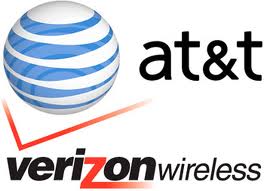 Verizon Wireless and AT&T have invested billions expanding and improving their wireless networks, telling investors that revenue from exploding wireless data usage would more than recoup their investments, but the growing availability of low-cost and free Wi-Fi is threatening to derail those plans.
Verizon Wireless and AT&T have invested billions expanding and improving their wireless networks, telling investors that revenue from exploding wireless data usage would more than recoup their investments, but the growing availability of low-cost and free Wi-Fi is threatening to derail those plans. AT&T and Verizon hoped customers would face upgrades to more costly plans with more generous usage allowances as data usage increased. Early efforts to monetize data usage seemed encouraging. Both carriers reported surprising success from in-store marketing efforts to push families to upgrade to deluxe 10GB+ usage plans in larger numbers than anticipated. But customers are now increasingly trying to stay within their budget and current usage allowance, with the help of Wi-Fi.
AT&T and Verizon hoped customers would face upgrades to more costly plans with more generous usage allowances as data usage increased. Early efforts to monetize data usage seemed encouraging. Both carriers reported surprising success from in-store marketing efforts to push families to upgrade to deluxe 10GB+ usage plans in larger numbers than anticipated. But customers are now increasingly trying to stay within their budget and current usage allowance, with the help of Wi-Fi.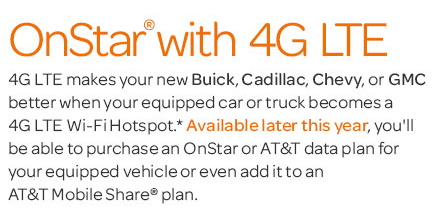 Their latest plan is to push the “Internet of Things” — machine to machine communications. Both AT&T and Verizon have invested heavily in wireless utility meter technology and are pushing manufacturers to add 4G capability to all sorts of home appliances from refrigerators, ovens, and dishwashers to home laundry centers, alarm systems, and even pet-webcams. But early efforts have not been promising. Reception in fixed indoor locations, especially basements, is often very poor to non-existent, and manufacturers don’t see much benefit adding mobile network connectivity when traditional Wi-Fi is cheaper and much more reliable.
Their latest plan is to push the “Internet of Things” — machine to machine communications. Both AT&T and Verizon have invested heavily in wireless utility meter technology and are pushing manufacturers to add 4G capability to all sorts of home appliances from refrigerators, ovens, and dishwashers to home laundry centers, alarm systems, and even pet-webcams. But early efforts have not been promising. Reception in fixed indoor locations, especially basements, is often very poor to non-existent, and manufacturers don’t see much benefit adding mobile network connectivity when traditional Wi-Fi is cheaper and much more reliable.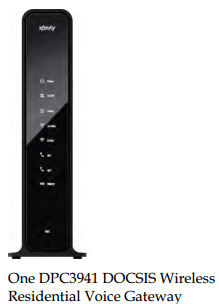 In an effort to keep up with increasing bandwidth demands on customers’ home networks, Comcast has
In an effort to keep up with increasing bandwidth demands on customers’ home networks, Comcast has 